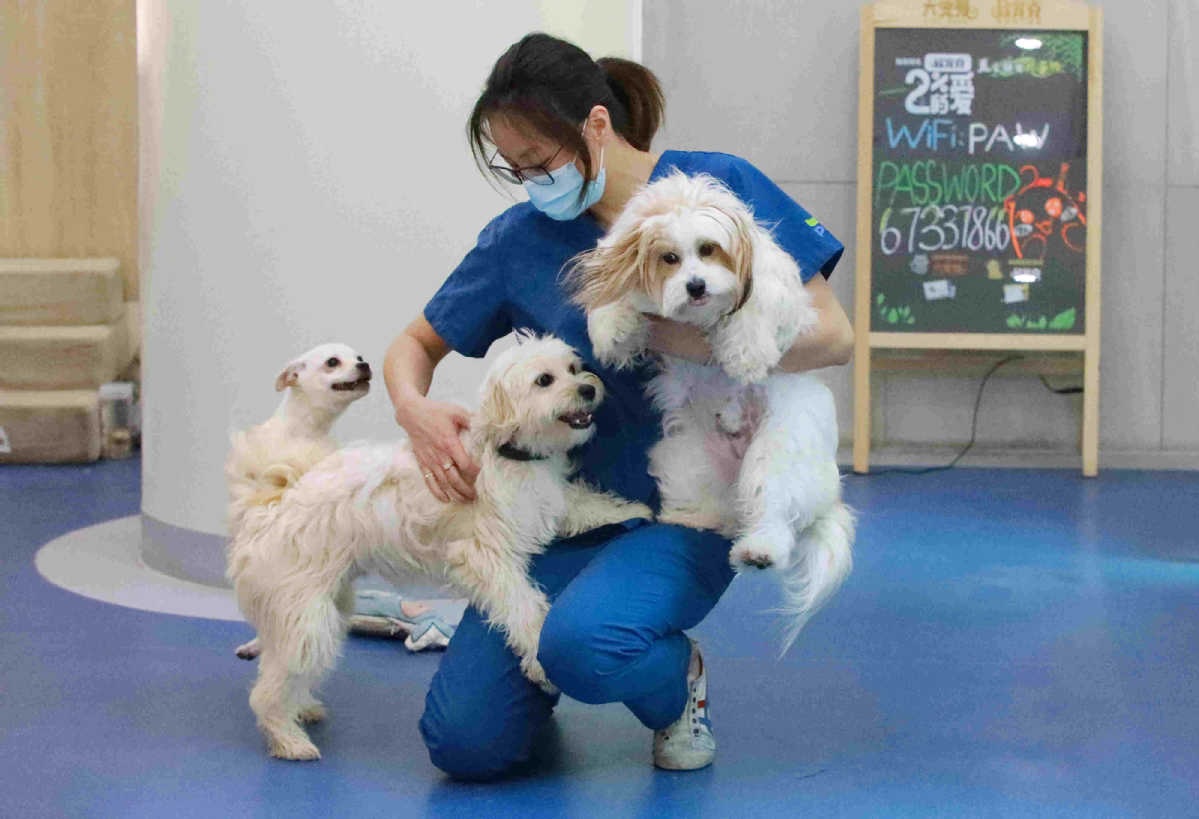More pet-friendly places, Shanghai political advisor suggests
By Zhou Wenting in Shanghai | chinadaily.com.cn | Updated: 2024-01-24 17:23

A local political advisor suggested Shanghai make more efforts to create a pet-friendly environment, which may affect the decision of some young people from home and abroad whether to work or live in a city.
Lu Huiwen, a member of the Shanghai Municipal Committee of the Chinese People's Political Consultative Conference, the city's political advisory body, said that a certain ratio of public places and public transportation shall be open to these furry friends and their owners.
She suggested the ongoing annual session of the local political advisory body that will last through Thursday.
She said that the city can apply a unified logo at shopping malls, parks, restaurants, and hotels to mark those that allow pets. Details, including which specific areas within such venues must ban the entrance of pets and how to deal with possible disputes, must be worked on.
"Such business entities and communities shall clearly indicate whether they are pet-friendly on their websites and social platforms. In this way, the activity areas of pet owners and those who are scared of pets will not interfere with each other, which is conducive to the harmonious coexistence between people and pets," said Lu, who is also president of Shanghai Xiehe Education Group.
She also suggested Shanghai unveil pet management regulations, expanding the scope of pet management, and forming specific rules for pet keeping in Shanghai by improving the management systems of registration, licensing, epidemic prevention, medical treatment, and adoption.
"Relevant regulations should clarify the punishment measures for pet abandonment and abuse, and increase the force of law enforcement," Lu said.
A PwC report about China's pet industry released in 2022 showed that half of the pet owners were born in the 1990s or younger, 57 percent had a college degree or above, and roughly half of them were single.
Domestic pets are playing a rising role in companionship and stable emotional support in today's society, Lu said.
























